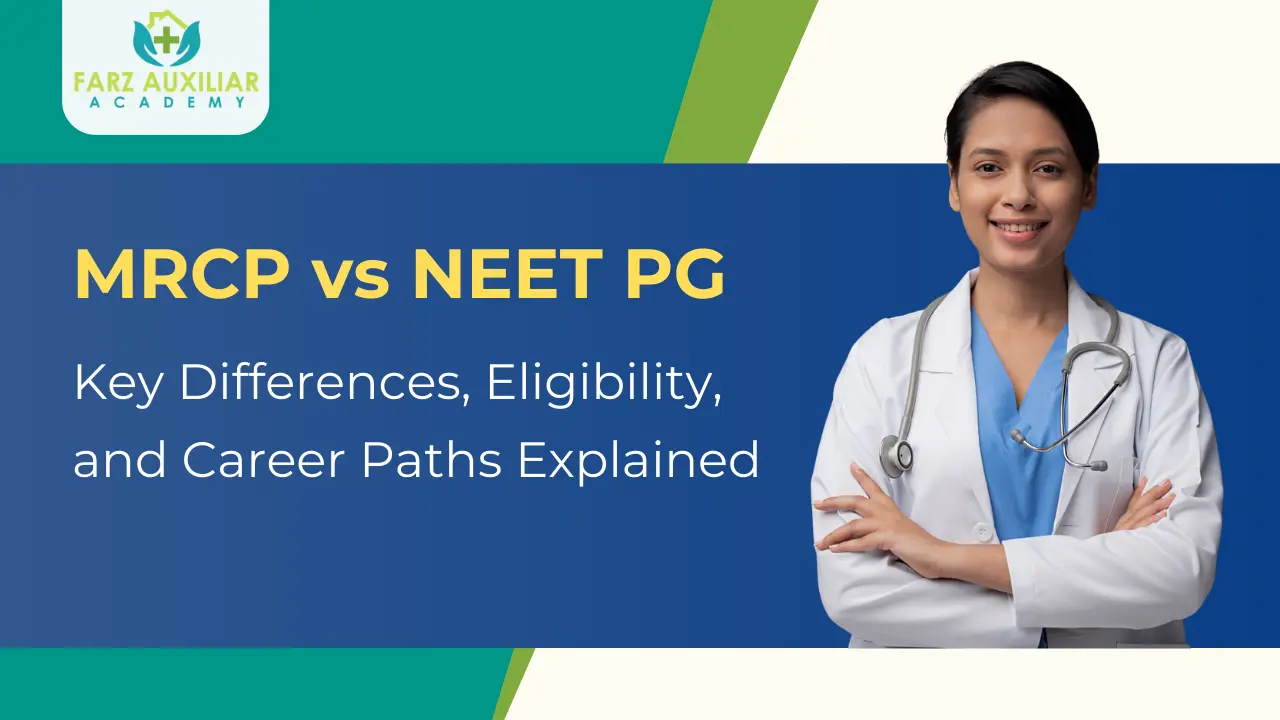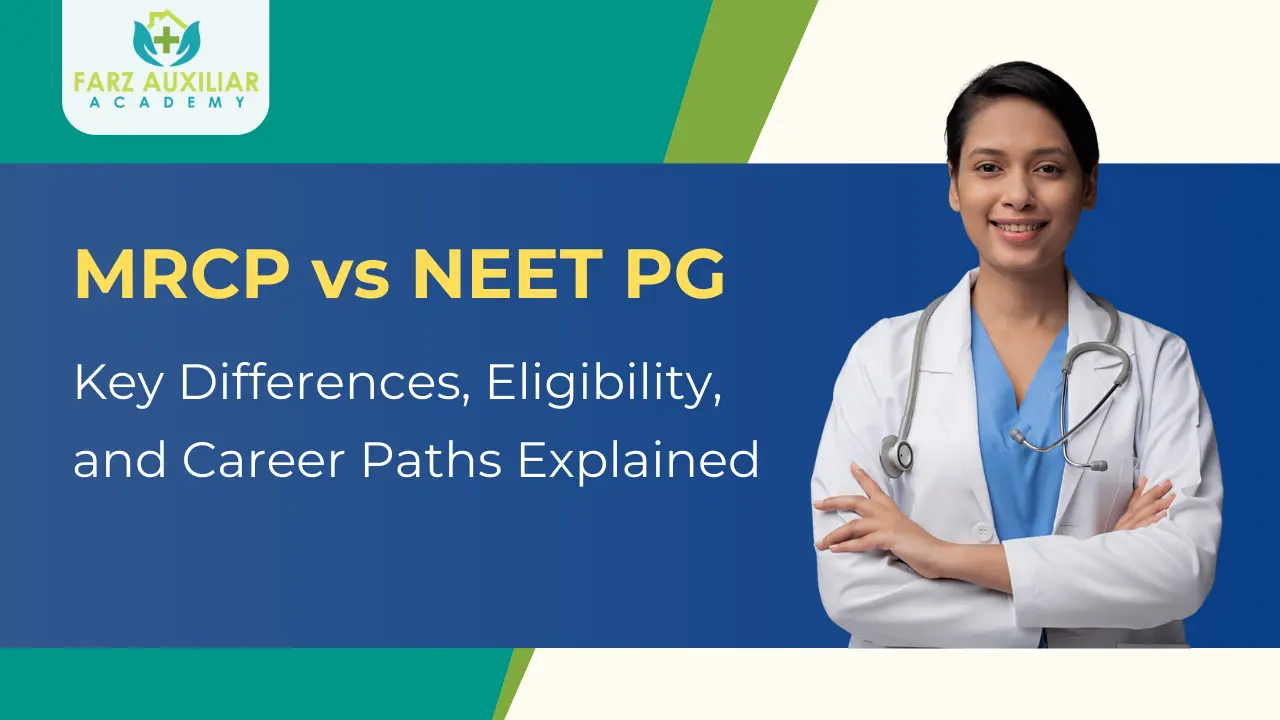
MRCP vs NEET PG: Key Differences, Eligibility, and Career Paths
A comprehensive comparison between MRCP and NEET PG qualifications, helping medical graduates make informed decisions about their postgraduate career paths.
For aspiring doctors looking to enhance their careers, two popular pathways often come into discussion: NEET PG (National Eligibility cum Entrance Test for Postgraduate) and MRCP (Membership of the Royal Colleges of Physicians). Both are prestigious postgraduate qualifications that open doors for advanced medical career opportunities, but they serve different purposes and cater to different goals.
Understanding NEET PG
NEET PG is an entrance examination conducted by the National Board of Examination in India. It is primarily for Indian medical graduates seeking admission into postgraduate medical courses like MD, MS, and PG Diploma in medical colleges across India.
Key Features of NEET PG
- Mandatory entrance exam for postgraduate medical education in India
- Computer-based test with 200 multiple choice questions
- Covers entire MBBS curriculum
- Duration: 3.5 hours
- Conducted once a year
Eligibility Requirements
- Completed MBBS degree from recognized institution
- Valid NMC (National Medical Commission) registration
- Completed mandatory internship
- Indian citizenship (with some exceptions for NRI/OCI)
Understanding MRCP
The MRCP (Membership of the Royal Colleges of Physicians) is a prestigious postgraduate qualification awarded by the Royal Colleges of Physicians in the United Kingdom. It's designed for doctors aiming to specialize in Internal Medicine and progress toward becoming consultant physicians.
MRCP Examination Structure
- Part 1: Tests basic medical sciences and clinical knowledge
- Part 2 Written: Focuses on clinical application and decision making
- PACES: Practical Assessment of Clinical Examination Skills
- Multiple exam dates throughout the year
- Can be taken internationally at various centers
While NEET PG leads to specialization within India, MRCP opens doors for international career opportunities, particularly in the UK and other countries that recognize the qualification.
Key Differences Between MRCP and NEET PG
1. Recognition and Scope
- NEET PG: Recognized primarily within India
- MRCP: Internationally recognized, especially in the UK and Commonwealth countries
- NEET PG leads to MD/MS degrees
- MRCP is a membership qualification leading to specialist registration
2. Examination Pattern
- NEET PG: Single comprehensive MCQ-based exam
- MRCP: Three-stage examination process
- NEET PG covers broader medical subjects
- MRCP focuses specifically on Internal Medicine
3. Career Opportunities
- NEET PG: Career progression within Indian healthcare system
- MRCP: International career opportunities, especially in the UK
- NEET PG leads to academic positions in Indian institutions
- MRCP opens doors for clinical practice in international hospitals
Making Your Choice: Factors to Consider
- Career Goals: Local vs International practice
- Time Investment: 3 years for MD/MS vs flexible timeline for MRCP
- Financial Considerations: Cost of exams and preparation
- Location Preferences: Where you want to practice
- Work-Life Balance: Different healthcare systems offer different experiences
The choice between MRCP and NEET PG should align with your long-term career goals, personal circumstances, and preferred practice location. Both paths offer excellent opportunities for professional growth and development.
Preparation Strategy
Regardless of which path you choose, proper preparation is crucial for success. At Farz Academy, we offer comprehensive preparation programs for both MRCP and NEET PG, with experienced faculty, structured study plans, and regular assessments to track your progress.
- Structured study materials aligned with exam patterns
- Regular mock tests and performance analysis
- Expert guidance from experienced faculty
- Online and offline learning options
- Personalized mentoring and doubt clearing sessions
Conclusion
Both MRCP and NEET PG are respected pathways in medical education, each with its unique advantages. Your choice should depend on your career aspirations, preferred practice location, and personal circumstances. Whatever path you choose, ensure you have access to quality preparation resources and guidance to achieve your goals.

